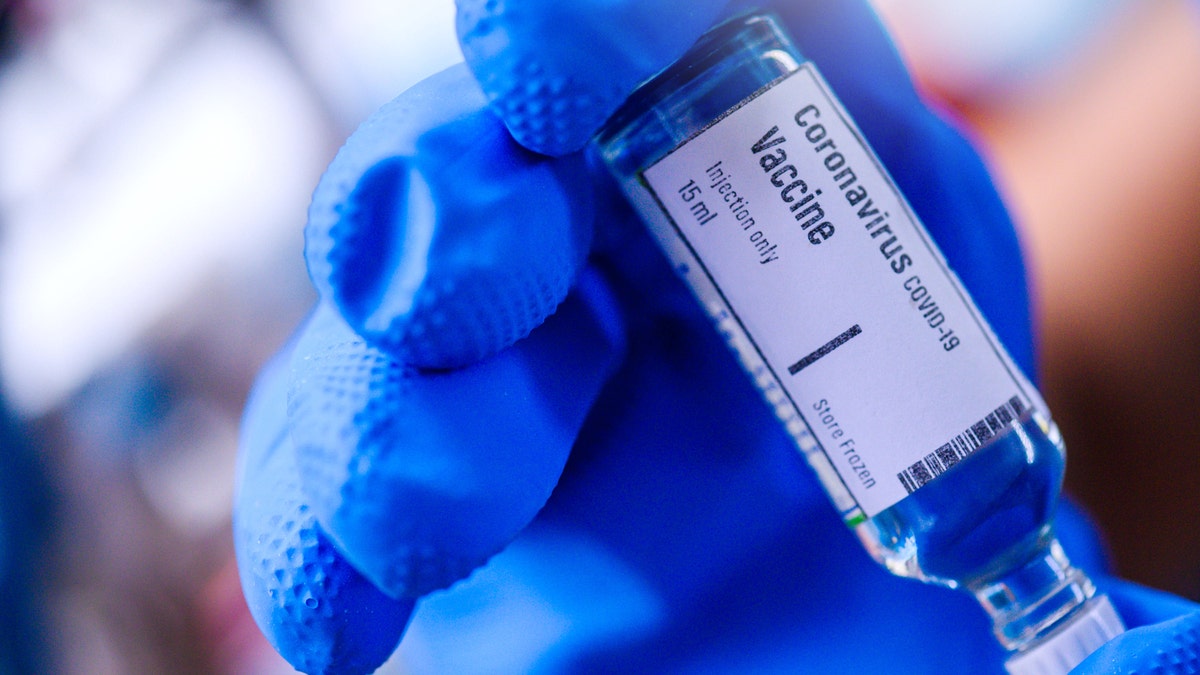Fox News Flash top headlines for November 23
Fox News Flash top headlines are here. Check out what's clicking on Foxnews.com.
New gene-based technology has proven effective in the development of two promising coronavirus vaccine candidates.
Both pharmaceutical giant Pfizer and biotechnology company Moderna have used messenger RNA (mRNA) when creating their respective vaccine candidates, both of which have proven over 90% effective in late-stage clinical trials. (Pfizer, which was the first to announce the results of its vaccine, recently applied for emergency approval for its vaccine from the U.S. Food and Drug Administration.)

New gene-based technology has proven effective in the development of two promising coronavirus vaccine candidates. (iStock)
The mRNA technology is “21st-century science,” one expert recently said. The vaccines are the fastest to ever be developed, and, if they are able to end the pandemic, could bring about a new era of vaccine development; the technology could be used to better existing vaccines and create new ones for a range of diseases.
"I think the use of mRNA shows promise. It continues to be studied in the field of cancer treatments. The key will be how does this new technology compare in terms of safety and efficacy compared to older technologies," said Dr. John Whyte, the chief medical officer of the health care website WebMD, in an email to Fox News.
WHY IS OXFORD’S HALF-DOSE CORONAVIRUS VACCINE MORE EFFECTIVE THAN THE FULL DOSE?
"For instance, AstraZeneca is using a traditional vaccine development approach using an adenovirus that has been modified. Although news reports state less effectiveness than Pfizer and Moderna, we will have to see how long immunity lasts for both types of vaccine. Also, if the logistics are too hard — very low temperatures — that might prevent further use of mRNA," he continued. (Indeed: there are concerns that Pfizer's vaccine candidate's low-temperature storage requirement could be a logistical snag, as the vaccine must be stored at temperatures of minus 70 degrees Celsius or below. Breaking the cold chain could render the vaccine useless.)
However, "it does appear promising and if the mRNA vaccine for COVID lives up to its hype, it will revolutionize the way we develop vaccines," added Whyte.
But how does mRNA technology — mRNA is a subtype of RNA — differ from a conventional vaccine?
Unlike conventional vaccines, which are produced by growing weakened forms of a virus in chicken eggs or certain mammalian cells in a lab, RNA vaccines only require the pathogen’s genetic code.
RNA vaccines also have the advantage of speed. It takes roughly a week to develop an experimental batch of an RNA vaccine, while a conventional vaccine can take months, as this process requires “collecting the viruses, adapting them to grow in the lab” before shopping them worldwide, according to Pfizer.
And time is of the essence when it comes to COVID-19, which has already claimed more than 250,000 American lives to date with more than 276,000 fatalities expected by December.
There are also biosafety benefits of RNA vaccines, according to the company, which notes that “no virus is needed to make a batch of an RNA vaccine.” Rather, only a small amount of virus is needed for gene sequencing and vaccine testing, where conventional vaccines require scientists to grow “large quantities of virus” to produce each batch of vaccine.
ASTRAZENECA CORONAVIRUS VACCINE LATEST TO SHOW PROMISE: HERE'S HOW IT COMPARES
Perhaps most importantly, RNA vaccines arguably create a stronger immune response to certain viruses and diseases than those of the traditional sort.
As Pfizer notes, RNA is “injected into the body and enters cells, where it provides instructions to produce antigens,” or a piece of the virus. The cell then “presents the antigens to the immune system, prompting T-cell and antibody responses that can fight the disease.”
In conventional vaccines, an antigen is injected into the body. The immune system then produces antibodies to this antigen, so if the body ever comes across this specific pathogen in the future, it’s already armed with tools to fight it off.
Lastly, researchers are hopeful that RNA vaccines will be able to be “scaled and standardized” unlike conventional vaccines, which require a “bespoke production process, including complex purification and testing,” says Pfizer.
CLICK HERE FOR FULL CORONAVIRUS COVERAGE
While both Pfizer and Moderna have used mRNA technology, the Oxford-AstraZeneca vaccine, another top coronavirus vaccine candidate, does not use mRNA technology. It instead involves an inactivated common cold virus isolated from chimpanzees, altered with genes to express the spike protein of the SARS-CoV-2 virus.
Fox News' Alexandria Hein and Kayla Rivas contributed to this report.









































